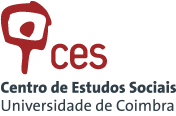Projeto de Tese de Doutoramento
Grammars of human dignity: paths towards pedagogical transformations and social justice
Orientação: José Manuel Pureza
Programa de Doutoramento: Human Rights in Contemporary Societies
Financiamento: FCT
Contemporary societies are widely marked by deep-rooted and renewed forms of social injustice, violence and human wrongs. Since their inception, human rights were proclaimed as the last utopian legal and moral language which somehow would bring possibilities of defending and promoting respect for human dignity, and create worthy futures for everyone.
Simultaneously, education appeared as the natural time/space of application, consolidation and expansion of human dignity and social justice. Within the last decades, education and human rights - i.e. human rights education (HRE) - has had a worldwide proliferation, that resulted in multiple and divergent conceptions and practices. However, this idyllic narrative faces multiple problems and subversions, from the imperialistic dissemination of liberal individualism and rational abstraction as moral epitomes of humankind, through the historical and contemporary practices of sacrificial violence and exclusions in the name of Human Rights, to an imperialistic dissemination of normative and regulatory approaches of HRE, generally reduced to imposed decontextualized curricula.
Simultaneously, educational contexts are embedded by a strong hybridism between ancient disciplinary practices and renewed neoliberal purposes, which promote multiple explicit and/or invisiblized processes of domination and oppression.
Grounded on this context, and acknowledging the scarcity of in-depth and sociological analysis regarding the opportunities and threats of connecting human rights with education, this PhD project develops in-depth problematizations of different educational contexts which are implicitly and/or explicitly connected to narratives of human dignity and social justice, in order to: i) map the organizational ethos, pedagogical practices, power relations and subject positions vis-à-vis their (non)potential to identify and eliminate multiple forms of dominations and oppressions; ii) eventualize other (counter) possibilities of co-construct pedagogical contexts and different ways of being and doing, based on ethical-political dimensions, for social justice within and through education.

